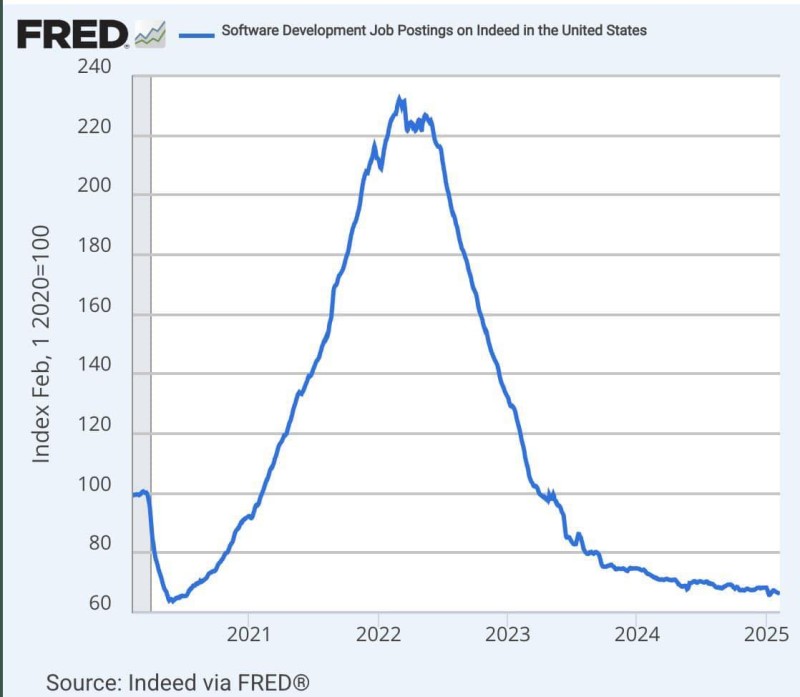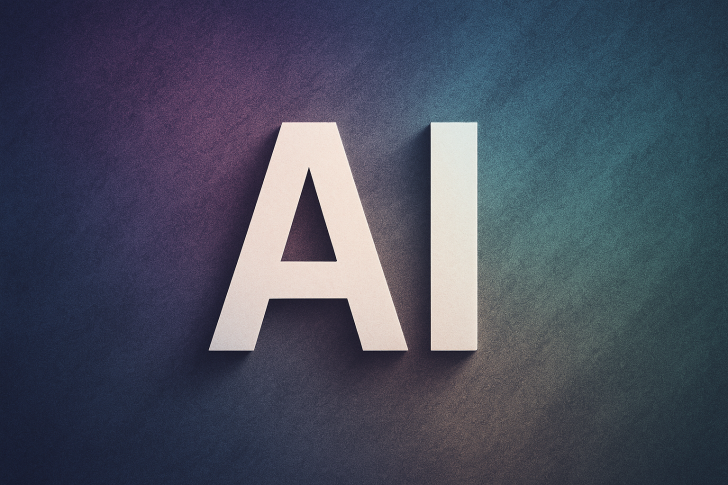Something fundamental is changing in software development. Recent data reveals that U.S. software job postings have plummeted over 70% from their 2022 peak. What appeared to be a temporary pullback has become a structural transformation driven by AI tools, automation, and a redefinition of the software engineer role itself.
From Boom to Structural Decline
Data from Indeed shared by trader Josh Rincon shows that software development job postings peaked in mid-2022 before crashing to near-2020 levels by 2025.

The chart vividly captures the tech sector's transition from post-pandemic overexpansion to sustained contraction. After aggressive hiring during the 2020–2022 digital transformation boom, companies started cutting positions as automation accelerated. This isn't a cyclical downturn—it's a fundamental shift in how software gets built, staffed, and scaled.
AI Tools Drive Productivity Revolution
The decline isn't just about economic tightening or reduced venture funding. AI is fundamentally changing the economics of software development. Tools like GitHub Copilot enable one skilled developer to match output that previously required entire teams. A single talented developer can now accomplish what took multiple people just five years ago. This productivity surge means companies deliver equal or greater results with far fewer engineers, explaining why firms like Microsoft report record revenue per employee despite slower hiring. The traditional entry-level engineer role is vanishing, replaced by smaller, highly efficient teams combining human expertise with AI assistance.
Elite Engineers and AI Entrepreneurs Rise
At the top, elite engineers working on frontier technologies—AGI research at OpenAI, rocketry at SpaceX, autonomous driving at Tesla—command record salaries. Their expertise in complex systems makes them irreplaceable. Meanwhile, a new wave of AI-native creators is emerging.
These entrepreneurs use generative AI to design, code, and deploy complete products in days. They don't fit the traditional engineer profile—they're hybrid builders merging creativity, coding, and automation. The middle tier of developers, once the backbone of tech companies, is shrinking rapidly as routine coding gets automated. Value and opportunity now concentrate at the extremes: elite innovators at one end, AI-powered entrepreneurs at the other.
A Redefined Profession
By 2025, the term "software engineer" carries a vastly different meaning than in 2020. The profession is evolving toward two archetypes: AI-augmented innovators (small teams and individuals building entire solutions with AI copilots) and elite frontier engineers (specialists working on AGI, robotics, and next-generation infrastructure).
This transformation reflects more than a job market decline—it captures the moment when technology began outpacing its own creators, the middle vanished, the elite rose, and a new generation started redefining what engineering means in the AI age.
 Eseandre Mordi
Eseandre Mordi

 Eseandre Mordi
Eseandre Mordi


